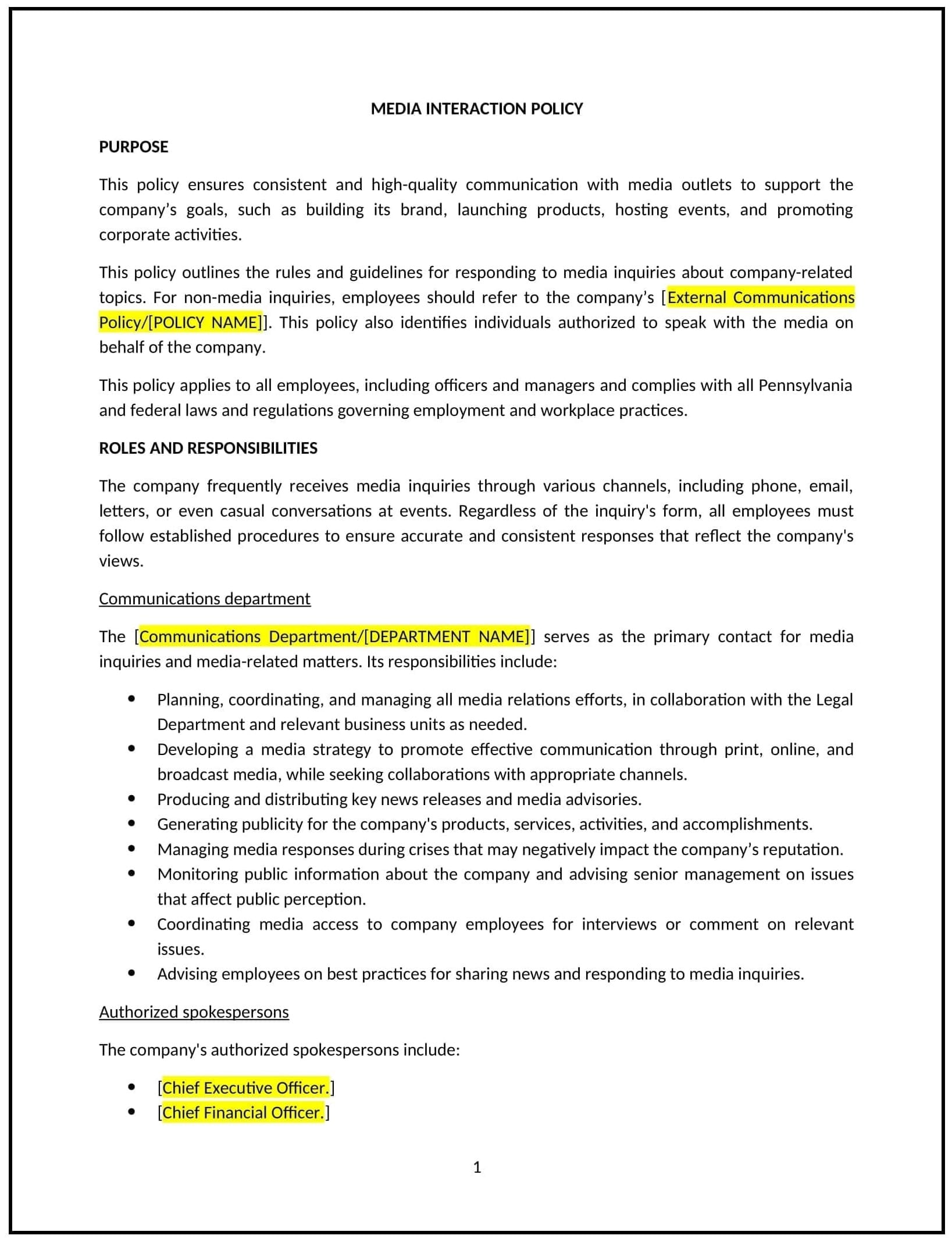Media relations policy (Pennsylvania): Free template
Got contracts to review? While you're here for policies, let Cobrief make contract review effortless—start your free review now.

Customize this template for free
Media relations policy (Pennsylvania)
This media relations policy is designed to help businesses in Pennsylvania manage interactions with the media effectively, ensuring that communications align with company values and protect the organization’s reputation. Whether responding to press inquiries, issuing statements, or managing crises, this template provides clear guidelines for authorized communications while reflecting Pennsylvania-specific industry practices.
By using this template, businesses can maintain consistency, enhance their public image, and reduce the risks associated with unauthorized or inaccurate communications.
How to use this media relations policy (Pennsylvania)
- Define authorized spokespeople: Clearly identify the individuals or roles within the organization authorized to speak to the media, such as executives or PR representatives.
- Establish communication procedures: Provide steps for handling media inquiries, including directing them to the appropriate spokesperson or department.
- Include approval processes: Specify how press releases, public statements, or interviews must be reviewed and approved before being shared externally.
- Address crisis communications: Outline protocols for managing media relations during crises, ensuring timely and accurate messaging.
- Reflect Pennsylvania-specific considerations: Tailor the policy to align with local industry norms and media landscapes, such as addressing regional outlets or industry-specific media coverage.
Benefits of using a media relations policy (Pennsylvania)
A well-structured media relations policy supports professionalism and brand consistency. Here's how it helps:
- Protects the company’s reputation: Ensures consistent and accurate messaging to maintain a positive public image.
- Reduces risks: Minimizes the chance of unauthorized or inappropriate communications reaching the media.
- Encourages accountability: Assigns clear roles and responsibilities for managing media interactions.
- Streamlines processes: Establishes a structured approach for responding to media inquiries and issuing public statements.
- Reflects local needs: Addresses Pennsylvania-specific media landscapes and industry practices, ensuring relevance and alignment.
Tips for using a media relations policy (Pennsylvania)
- Train authorized spokespeople: Provide media training to designated representatives to ensure they handle inquiries confidently and professionally.
- Develop key messages: Prepare consistent talking points for common topics to ensure clear and unified communications.
- Monitor media coverage: Track and review media mentions to identify opportunities for engagement or address potential inaccuracies.
- Communicate the policy: Share the policy with employees to ensure they know how to handle media inquiries and understand their role in protecting the company’s image.
- Review periodically: Update the policy to reflect changes in Pennsylvania laws, media practices, or organizational goals.